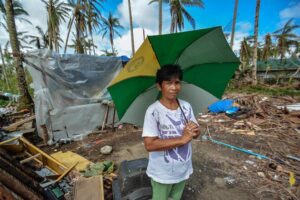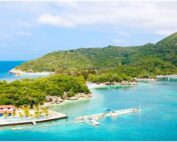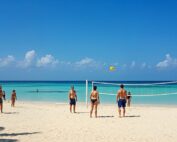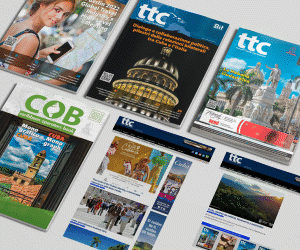TTC Special: The Caribbean knows how to deal with hurricanes

Photo: Pexels/ Denniz Futalan
By Frank Martin
The hurricane season in the Caribbean opened on June 1 as every year and will close in November, but also as always it never stops the millionaire arrivals of tourists to the region because the leisure industry in this part of the world is very well prepared for this contingency.
It is true that Internet is full of warnings about that powerful swirling storms and what can be done about them. The regional tourism industry is also highly prepared to face them.
“Find out if the local public shelter is open, in case you have to evacuate your accommodation and go there,” a digital media recently stressed before the start of the season in 2023.
It is also true that in the Caribbean the authorities know exactly how they are going to protect the population and its guests, including through the use of public shelters.
“Make a plan,” another call from the press peremptorily advises. No matter whether you are a resident of one of the Caribbean islands or a tourist, you will have many people “armed” with transportation, rules, doctors, and rules and actions to protect them.
Experts consider that a very valid first measure for a traveler who wants to travel to the Caribbean is to know when hurricanes usually pass through the area.
The cyclonic period is from June 1 to November 30, which does not mean that during that time there will be storms after storms.
The best months to visit a Caribbean island are then from November to April, by the way, with almost ideal temperatures and little rain.
Another good fact to keep in mind is about the frequency that cyclones arrive at each Caribbean location. There are some more likely to receive storms than others according to historical sequences.
An interesting fact is that it can take years for one of these organisms to hit the same place twice. However, no one at the regional level tries to ignore the danger.
Caribbean destinations often have robust hurricane protection programs in which early evacuations are especially prevalent.
Various international entities often have support programs for such disasters. The CTO, Caribbean Tourism Organization, is present in the set of measures with communication guidelines for its members in case it is necessary to prepare, respond and recover from a hurricane.
An organization’s 2023 Atlantic Hurricane Communications Plan is in place that outlines the roles to be assumed by various stakeholders, including addressing issues such as crisis management, social media, and communication with the media.
National Oceanic and Atmospheric Administration (NOAA) meteorologists with the Weather Prediction Center anticipate a near-normal hurricane activity in the Atlantic this year.
Their forecast is typically a 40% chance of a near-normal season, a 30 % chance of an above-normal season, and a 30% chance of a below-normal season.
The Caribbean, before and after the pandemic, has been and is one of the favorite destinations for travelers.
Experts explain that this is not rare or an invention convenient to the tourist destination. Something proven is that there are various natural disasters that can surprise a tourist during the holidays, in any place worldwide, among these, in addition to hurricanes, earthquakes, floods, atmospheric phenomena such as tornadoes, copious rains, snowfalls and others.
Some of those disasters, like earthquakes, cannot even be predicted like hurricanes. The Caribbean, on the other hand, knows how and when to be more prepared to face it.

MORE NEWS










